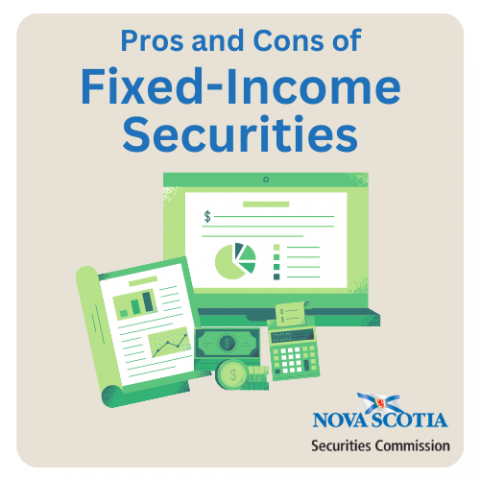Submitted by nsscadmin on

This week we exam some of the pros and cons to investing in fixed-incomed securities.
The Nova Scotia Securities Commission does not provide investment advice. We are not advising or recommending the use of any of fixed-income securities in your investment portfolio. We are providing this pros and cons to help you make a suitable investment decision for your own financial situation and goals.
Pros:
Fixed-income securities provide steady interest income to investors.
Most fixed-income securities are rated by credit rating agencies giving investors valuable information when choosing the right investments.
Fixed-income securities usually have low price volatility risk.
Some fixed-income securities are guaranteed by the government providing a safer return for investors.
Cons:
Fixed-income securities have credit risk, so the issuer could possibly default on making the interest payments or paying back the principal.
Fixed-income securities tend to deliver a lower rate of return than other investments.
Fixed-Income securities with locked-in terms may be inaccessible to investors if needed.
Inflation risk - if the measure of inflation rises and the interest rate is locked in on an investment, it can be detrimental to those invested in fixed-income securities. The interest rate does not provide the same purchasing power as inflation goes up.
Interest rate risk - If interest rates rise at a faster rate than the rate on a fixed-income security, investors may lose out by holding the lower yielding security if their locked into an investment by a term.
